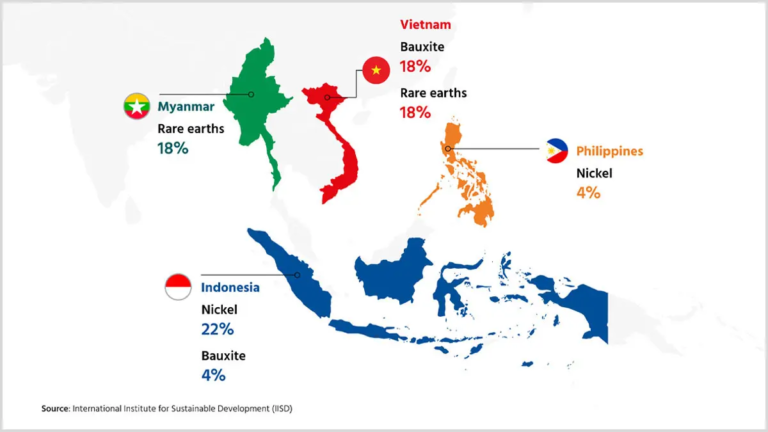
In an increasingly competitive clash over resources in the global commons, nations are employing insidious means of asserting power. China, in particular, engages in lawfare, the strategic manipulation of legal frameworks and public sentiment to advance its geopolitical agenda. The Chinese Communist Party (CCP) especially employs lawfare in the critical domain of fishing rights and maritime control.
Beijing’s strategy isn’t about genuine environmental protection. Instead, it’s a thinly veiled pretext for territorial expansion and resource seizure, cloaked in the universally appealing language of conservation. This is not benign diplomacy. It’s a distortion of international customs to undermine neighboring sovereign nations.
Environmental Lawfare
Beijing views lawfare as an offensive weapon, one of its “three warfares” that it has codified alongside psychological manipulation and media propaganda. The objective is clear: to shape narratives, bend global opinion and twist legal frameworks to achieve strategic military and political dominance. Lawfare is particularly dangerous because it exploits the international community’s genuine concern for environmental well-being and masks aggressive intentions with a veneer of responsible stewardship.
These questions can help identify the CCP’s environmental lawfare: Is China using environmental pretexts to achieve outcomes traditionally associated with military force or enforcement of domestic laws outside its own internationally recognized exclusive economic zone (EEZ)? Does it appear Beijing’s excessive claims would weaken or dismantle neighboring countries or adversaries’ legitimate claims? Legal professionals, particularly those committed to upholding international law, bear an urgent responsibility to expose and resist these deceptive tactics.
The global environmental movement, spurred by rising ecological concerns, has led to international agreements such as the United Nations Convention on Law of the Sea (UNCLOS) and the 2022 U.N. General Assembly Resolution 77/118 on sustainable fisheries. UNCLOS and resolutions such as 77/118 are designed to foster cooperation and protect shared ecosystems.
Beijing misuses these treaties and resolutions to serve its own economic and strategic ends. In recent years, the CCP has leveraged global environmental concerns to expand its regional and global hegemonic goals.
Environmental Coercion in the South China Sea
Nowhere is China’s environmental lawfare more apparent than in the South China Sea, where Beijing relentlessly asserts expansive territorial claims that have no basis in international law and which the Permanent Court of Arbitration rejected in its 2016 ruling under UNCLOS. Despite this international legal rebuke, Beijing regularly uses environmental pretexts to reinforce its illegitimate claims.
Consider Beijing’s annual fishing ban, which it has unilaterally imposed from May to August every year since 1999. This ban, presented as a conservation measure, extends across the South China Sea and into the legitimate EEZs of sovereign nations such as the Philippines and Vietnam in violation of UNCLOS. Each year multiple nations in the South China Sea protest the overreaching moratorium, but China consistently responds with intransigence, demonstrating Beijing’s contempt for and disregard of international legal rulings that don’t align with its interests.
Similarly, the CCP defends its artificial island building projects on disputed features in the Spratly Islands as environmental protection efforts. Beijing went so far as to claim the artificial islands and the accompanying infrastructure help facilitate international shipping traffic in the area. However, building artificial islands and military structures such as runways undeniably caused irreparable ecological devastation, destroying vital coral reefs and marine ecosystems. This is not environmental stewardship; it is calculated ecological damage designed to create military outposts and reinforce Beijing’s excessive maritime claims.
China’s supposed stewardship, poorly disguised as environmental initiatives, consists of attempts to assert and enforce territorial control. By arresting foreign fishermen, imposing arbitrary fishing bans and deploying its coast guard under the guise of marine conservation, the CCP systematically asserts de facto control and enforcement mechanisms in contested zones. This so-called soft power tactic allows Beijing to incrementally solidify its excessive claims without engaging in overt military conflict and exploit international customs of ecological responsibility to advance its agenda.
The Philippines and Vietnam have objected to Beijing’s tactics, while Malaysia and Indonesia have increased their naval presence in response to Beijing’s incursions and use of environmental lawfare. These nations perceive Beijing’s ecological justifications as a cover for territorial conquest. They have called for stronger international enforcement of UNCLOS and greater regional cooperation through bodies such as the Association of Southeast Asian Nations. Yet, China’s economic and military might in the region makes this a challenging issue for smaller nations.

CREDIT: PETTY OFFICER 2ND CLASS JUSTIN UPSHAW/U.S. COAST GUARD
Environmental Hypocrisy
China consumed 60,541 tons of fish in 2022, four times more than the next highest consuming country. China’s massive distant-water fishing fleet, the world’s largest, poses a significant environmental threat through widespread illegal, unreported and unregulated (IUU) fishing. This fleet, which Beijing subsidizes, has severely depleted fish stocks globally, particularly in the waters of developing nations that lack the resources to enforce their EEZs and maritime boundaries. The environmental impact is immense, as China’s vessels employ destructive practices such as bottom trawling, which indiscriminately captures all marine life in its path and devastates fragile ecosystems. This aggressive resource depletion stands in stark contrast to China’s stated commitment to sustainable development and international ocean governance, revealing a troubling hypocrisy. While China has joined international treaties such as the Port State Measures Agreement to combat IUU fishing, the sheer scale of its malign activities and the underreporting of catches demonstrate a significant disconnect between its stated policies and actual practices. This not only undermines global conservation efforts but also deprives coastal communities of critical food sources and economic livelihoods, highlighting the deeply unsustainable and inequitable nature of China’s global fishing footprint.
Counter Lawfare is Imperative
China’s weaponization of environmental stewardship is not an act of benevolent global citizenship. It is a calculated and dangerous form of lawfare designed to expand its territorial reach and exert global dominance. By exploiting universal concerns for environmental protection, Beijing manipulates international law, undermines national sovereignty and threatens global stability, all while engaging in some of the most destructive land reclamation and fishing practices in the world. Legal practitioners, policymakers and the international community must unitedly expose and resist deceptive tactics and environmental lawfare. Failure to do so will empower Beijing to dismantle the international legal system and impose its own self-serving version of global order.




